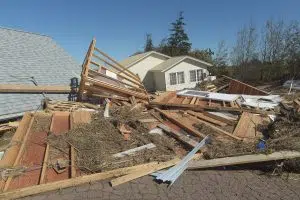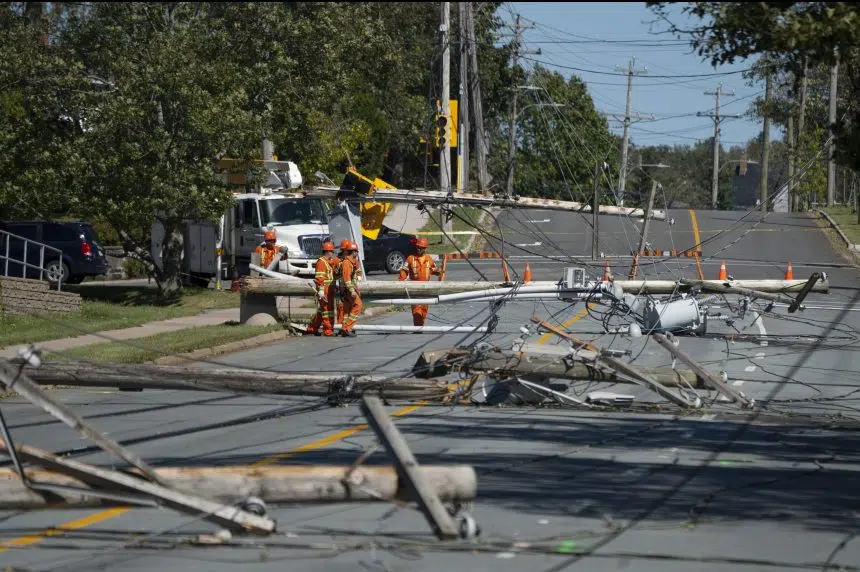People in the Maritimes are cleaning up in the wake of Hurricane Fiona.
The storm over the weekend left a lot of damage according to Wendy Hanlan, who lives just east of Halifax.

Two cottages were destroyed in a cottage development in the French River area of Prince Edward Island on Sept. 25, 2022. THE CANADIAN PRESS/Brian McInnis
“The storm was quite intense,” she told the 650 CKOM Morning Show. “It shook my house all night. I lost about 20 trees. (We didn’t have any) property damage, but we are without power here and probably will be (without it) until Thursday.”
Hanlan said while not having power isn’t ideal, she does have a generator along with a barbecue so she can cook without a stove. She also doesn’t need to rely on heat at this time given it is still warm outside.
But she does say most of the damage she has come across is damage to roads and peoples’ vehicles.
“There’s a lot of structural damage all over the province,” Hanlan stated. “(That’s the case) even right on my road, which is interesting, because there are parts of my road which were relatively untouched and other parts that were really hit hard.
“Gazebos were turned into matchsticks, trees (are) down on houses and cars (are) across roads and of course the other end of the road which is right on the ocean took the hit pretty hard,” she added. “Taking a drive up and down the road was a bit of a shock.”
While some roads were damaged, Hanlan says most of the main roads like the one to the hospital are back to normal.
Speaking on the Roy Green Show on the weekend, Cape Breton councillor Gordon MacDonald said there were more than 70 roads that were impassable and at least 120 people had been displaced.
A state of emergency is in place until Thursday, but MacDonald said they’ll need at least that much time in order to clean up.
Members of the Canadian Armed Forces are being deployed to help with recovery efforts, with Defence Minister Anita Anand saying Sunday that about 100 troops apiece were either in place or en route to Newfoundland, Nova Scotia and P.E.I. to help with the cleanup effort.
Emergency Preparedness Minister Bill Blair said the immediate need is to provide food and shelter for those displaced by the storm, which is why the federal government is matching donations to the Canadian Red Cross.
But Blair added that Ottawa will work with the affected provinces to determine what is needed for recovery from a financial perspective, especially for people who have lost everything. He said the first priority is the restoration of power and utilities, as well as clearing roadways to get essential supplies to those who need them.
At Fiona’s peak on Saturday, more than 500,000 customers across Atlantic Canada were without power, but by early Monday morning that number had been lowered to less than 300,000, with the vast majority in Nova Scotia.
Even as crews work around the clock to repair downed lines, some utility companies warned it could be days before the power is back on for everyone.
— With files from The Canadian Press











